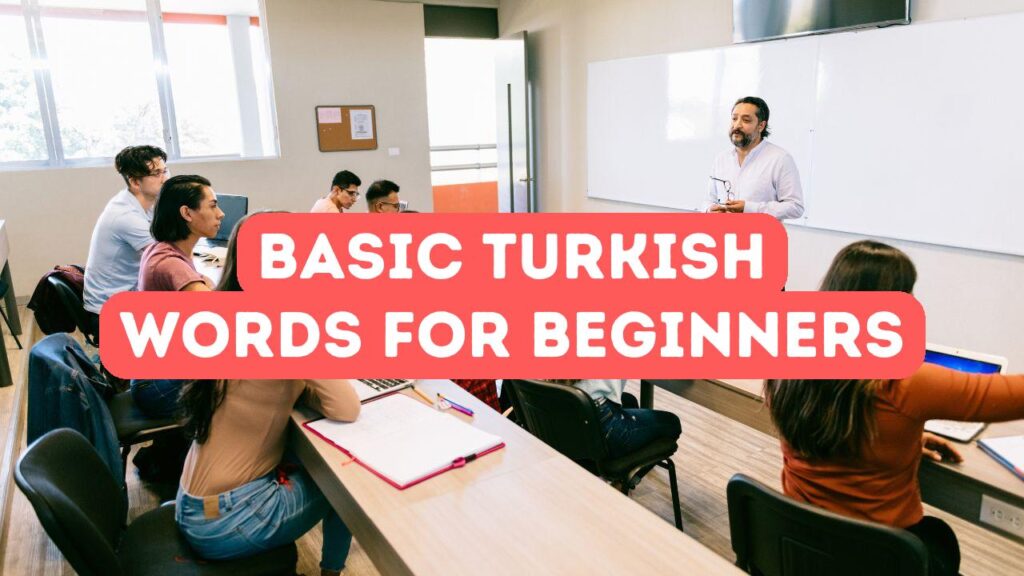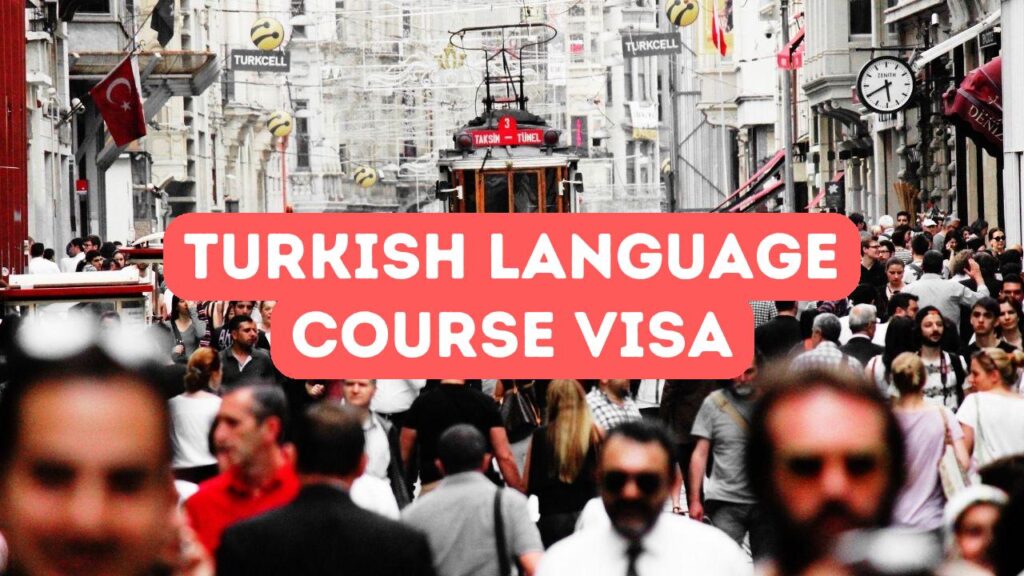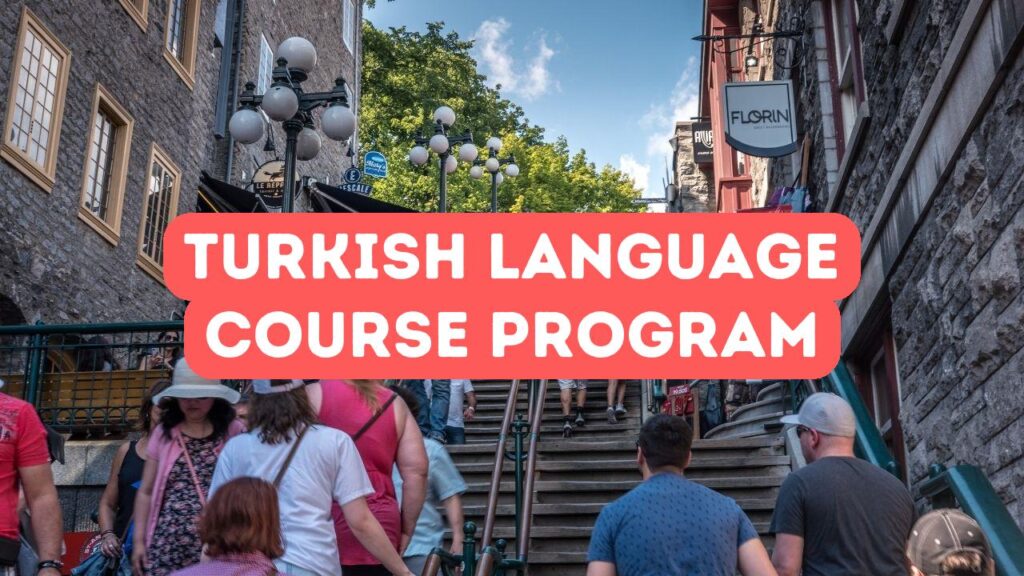Learning a new language can feel like a puzzle at first. Turkish vocabulary is no exception. But once you start piecing it together, the picture becomes clearer. For those diving into Turkish language basics, grasping the key words and phrases is essential. As you learn Turkish words, you’ll discover that some beginner Turkish phrases can unlock a world of conversation. Knowing common Turkish expressions not only helps in chatting with locals but also in understanding the culture. By focusing on these foundational elements, you’ll build a strong base for further language learning. Wondering where to begin? Start with “Merhaba” for hello, or “Teşekkürler” for thank you. These simple steps forward in learning give you the confidence to dive deeper. Remember, practice makes perfect. Stick with these basics, and you’ll soon find yourself navigating the waters of Turkish conversation with ease and confidence.
Essential Vocabulary for Everyday Conversations
Mastering Turkish vocabulary can be your key to unlocking daily interactions. Imagine ordering a “kahve” (coffee) or asking for directions with confidence. Focus on beginner Turkish phrases and you’ll soon be chatting effortlessly. Why not start with “Günaydın” for good morning? These common Turkish expressions form the backbone of Turkish language basics, bridging the gap between you and native speakers. Enlightenment dawns when you greet a vendor with “Merhaba,” connecting through language. Each word learned, each phrase uttered, sharpens your skills. As you build on these essential blocks, they act like stepping stones across a river, leading you steadily onward. Remember, every Turkish word learned is a thread in the tapestry of conversation. Embed these words into your routine, make them dance in your dialogues, and engage seamlessly. Start small, stay consistent, and watch as the vast world of Turkish opens up to a cordial exchange.
Essential Vocabulary for Everyday Conversations begins by embracing the heart of Turkish interactions. Common Turkish expressions like “Nasılsınız?” for “How are you?” can soften encounters with a warmth native to the culture. Diving into Turkish vocabulary unlocks a world where simple words carry deep meanings. With beginner Turkish phrases like “Üzgünüm” for “I’m sorry” in your arsenal, you smooth over any ripple in communication. As you learn Turkish words, imagine discussing flavors at a local “lokanta” (restaurant). Turkish language basics aren’t just language; they are a bridge to heartfelt exchanges. Familiarity with these essentials fosters connections as genuine as the Turkish hospitality itself. Through such engagements, every conversation becomes a dance of mutual understanding. Picture this: your first conversation at a bustling bazaar, guided by these foundational words, painting a vivid tapestry of shared stories and experiences. Let these basics be your compass in the rich landscape of Turkish dialogue.
Grasping Turkish vocabulary transforms simple greetings into meaningful connections. “Elveda” for goodbye might mark the end of a chat, but “Görüşürüz” promises a meeting again, hinting at friendship and continuity. Dive deeper with phrases like “Afiyet olsun,” enriching your dining experiences. Every word learned expands your ability to engage, making Turkish language basics indispensable. Adding “Memnun oldum” for “Nice to meet you” into conversations radiates genuine warmth and sparks rapport. Through these beginner Turkish phrases, you weave stories beyond words, nurturing bonds. Picture engaging tables at a “çayhane” (tea house), sharing moments with common Turkish expressions, each phrase opening doors to shared laughter and appreciation. As you learn Turkish words, you enter a realm where language becomes more than communication—it’s a vessel of emotion and culture. With each word, you’re not merely speaking, you’re embracing the essence of Turkish hospitality.
Mastering Key Phrases for Travel and Social Interactions
Traveling to Turkey? Familiarizing yourself with Turkish vocabulary can make all the difference. When you learn Turkish words used in everyday situations, you’ll find yourself at ease in bustling bazaars or lively cafes. “Nasılsınız?” means how are you, and it’s one of the common Turkish expressions you’ll hear often. Whether you’re seeking directions or ordering a delightful cup of Turkish tea, these beginner Turkish phrases are your ticket to smoother social interactions. Dive into the Turkish language basics, where each word unlocks new experiences. From a simple “Lütfen” for please to a heartfelt “Güle güle” for goodbye, mastering these phrases equips you for both travel and social interactions. Remember, understanding the language isn’t just about words—it’s about connecting with people and their rich culture.
Mastering key phrases in Turkish vocabulary can transform your travel and social interactions. Start with “Evet” for yes and “Hayır” for no, essential words in any conversation. If you want to impress with beginner Turkish phrases, “Afiyet olsun” is perfect when someone serves food, translating to “Enjoy your meal.” When you learn Turkish words like “Hoş geldiniz,” meaning welcome, you’re setting a warm tone. Common Turkish expressions such as “Nerede?” meaning where, and “Kaç?” meaning how much, are lifesavers in busy markets. Dive into Turkish language basics with these phrases, and you’ll notice smoother exchanges. Remember, knowing just a few expressions can deepen your experience and connections. Whether asking for advice or sharing a moment with locals, these words act as bridges. Equip yourself with these expressions and open doors to a richer travel and cultural experience.
While navigating Turkish language basics, it’s essential to dive deeper into phrases that can truly enhance your experience. Imagine strolling through the vibrant streets of Istanbul. Suddenly, you need help, and you utter “Yardım eder misiniz?” It means “Can you help me?” With this phrase, language barriers start to crumble. A simple “Benim adım…” introduces you by saying “My name is…” and creates connection. In conversations, “Anladım” or “I understand” can bridge gaps. As you learn Turkish words, mixing them into sentences keeps interactions lively. Challenge yourself with “Fiyatı ne kadar?” or “How much is it?” for bargaining in diverse markets. Mastering these beginner Turkish phrases embeds you deeper into daily life, enabling smoother exchanges. Remember, these common Turkish expressions root your experiences in genuine interaction. Embrace the Turkish vocabulary, and watch how effortlessly connections form, stories unfold, and the magic of travel blooms.
Tips for Effective Learning and Retention Techniques
To tackle Turkish vocabulary efficiently, try blending different methods to suit your learning style. Begin with visual aids, like flashcards, that highlight beginner Turkish phrases and enhance retention. Hearing words in context is invaluable, so engage with Turkish media; listen to songs or watch films with subtitles. This approach makes you familiar with common Turkish expressions naturally. Don’t just read; speak! Regular practice can strengthen your grasp of Turkish language basics. Set realistic goals—perhaps learn Turkish words at a pace of ten daily. Immerse yourself online, join forums, or language exchange groups focused on Turkish. This mirrors real-world conversations, helping to cement your knowledge. Utilize apps designed for language learners to provide structure and track progress. Remember, the key to mastering any language lies in consistency and curiosity. With these techniques, you’ll have a solid foundation, turning your Turkish vocabulary learning journey into a delightful exploration.
To truly embed Turkish vocabulary into your memory, varied techniques are crucial. Start by linking beginner Turkish phrases to daily activities. For instance, say the Turkish word for “water” every time you grab a glass. This repetition anchors words in real-life contexts, ensuring they stay in mind. Building visual maps of common Turkish expressions can also aid recall. Sketch a simple scene and label with Turkish language basics. This visual association creates mental hooks. Engage more senses by recording yourself as you learn Turkish words; playback allows for self-correction and reinforcement. Create sentences with new vocabulary to cement understanding within Turkish conversation frames. Moreover, rely on spaced repetition software to tackle challenging phrases progressively. Aim for intervals that challenge yet reinforce. As you hone these skills, embrace the joy of discovery. Let these small victories inspire your continued exploration of Turkish language basics, fostering lasting retention.
Learning Turkish vocabulary can be like planting a seed that blossoms with consistent care. Use mnemonic devices to make beginner Turkish phrases stick. Turn the word “ev” (house) into an imaginative story, picturing your dream home planted firmly in your memory. With each story you craft, those common Turkish expressions gradually meet daylight. Engage in conversations focused on Turkish language basics to reinforce learning. Every interaction provides a stage to showcase your growing skills. Transform mundane moments into learning opportunities; label items around you with sticky notes of Turkish words. Wondering how to perfect your pronunciation? Tune into Turkish podcasts. Mimic intonations, letting them roll off your tongue like a local. As you learn Turkish words, embrace mistakes. They’re mere stepping stones to fluency. With these tips, let the rhythm of the language dance in your mind, and feel its culture pulse through your veins, paving your path to mastery.







